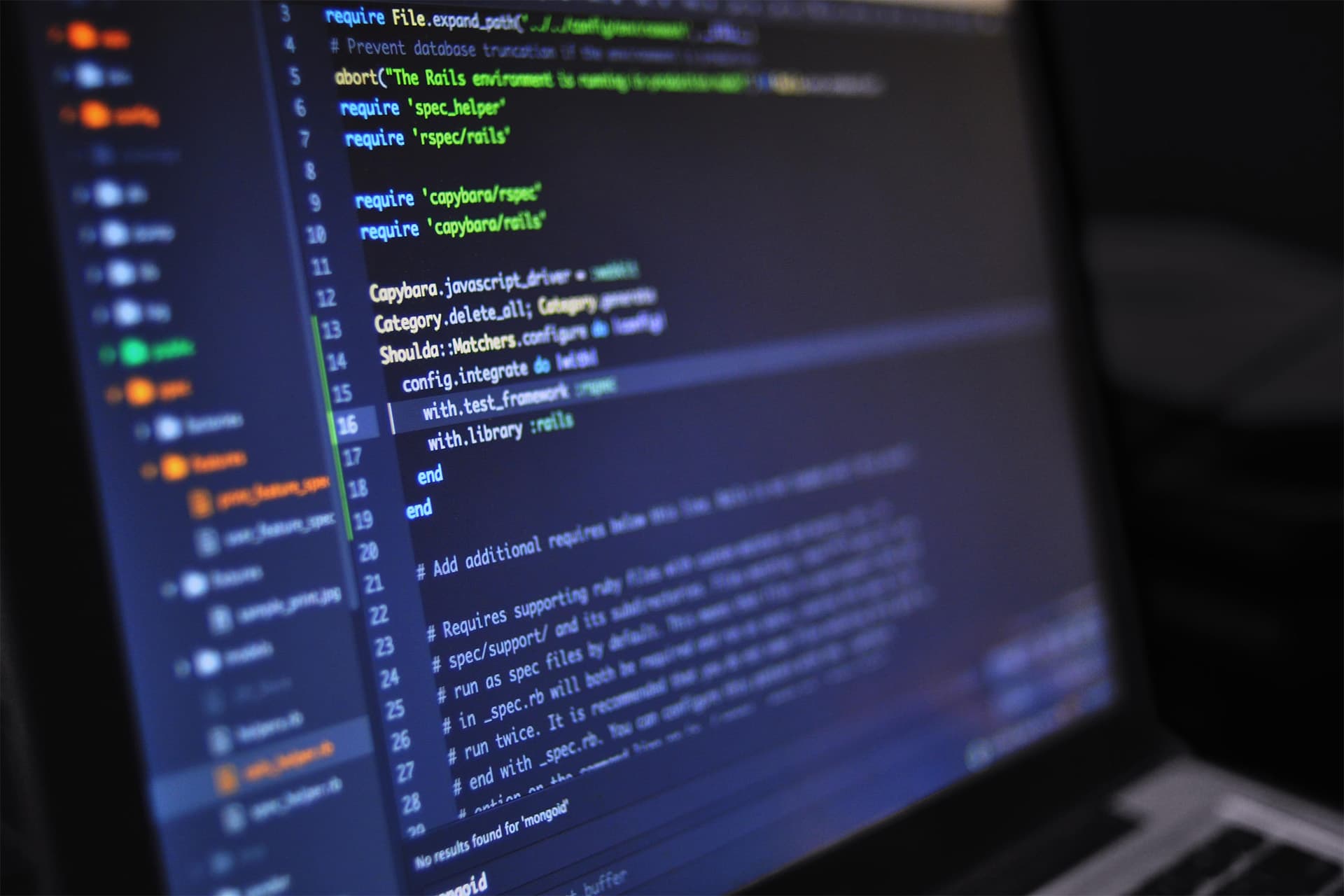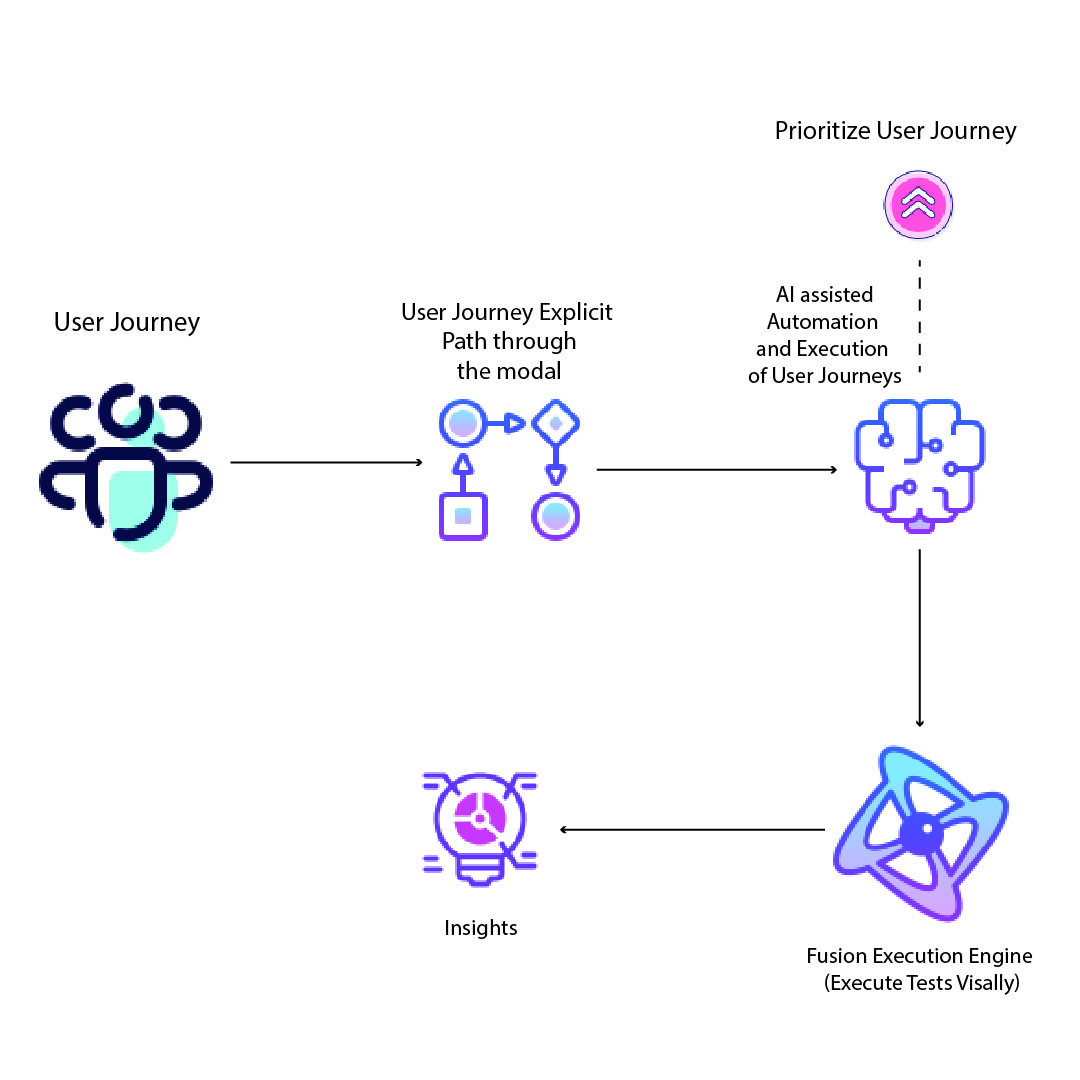How AI is Making Software Testing More Efficient and Reliable

Table Of Content
- The Evolution of Software Testing: From Manual to AI-Powered
- A Trip Down Memory Lane
- Enter Automation: The First Savior
- Check if the title is correct
- Find an element and click it
- AI: The New Kid on the Block
- How AI is Revolutionizing Software Testing
- Smart Test Case Generation
- Predictive Analytics for Testing
- Automated Bug Detection
- Self-Healing Test Scripts
- Natural Language Processing (NLP) for Test Creation
- Real-World Applications: AI Tools Making Waves
- 1. Testim
- 2. Applitools
- 3. Functionize
- The Pros and Cons of AI in Software Testing
- Pros
- Cons
- The Future of AI in Software Testing
- AI and Continuous Testing
- Example:
- AI-Driven Test Data Management
- Integration with IoT Testing
- Tips for Implementing AI in Your Testing Strategy
- Start Small
- Choose the Right Tools
- Train Your Team
- Monitor and Iterate
- Conclusion
Let's be honest: software testing isn't exactly the rockstar of the development world. It's more like the bass player—crucial, but often overlooked. While everyone wants to be the lead guitarist (aka the developer), someone has to keep the rhythm (cue the testers). But what if I told you that Artificial Intelligence (AI) is stepping in to make software testing not just bearable but—dare I say it—exciting? Buckle up, folks, because we're about to embark on a journey where machines help us squash bugs faster than you can say "null pointer exception."
The Evolution of Software Testing: From Manual to AI-Powered
A Trip Down Memory Lane
Remember the good old days when testing involved a room full of tired-eyed individuals clicking through every possible scenario until their fingers went numb? Yeah, me neither—I blocked those memories. Manual testing was not just time-consuming; it was also error-prone. Humans, after all, are fantastic but flawed creatures.
Enter Automation: The First Savior
Then came automation testing tools like Selenium and JUnit. They were like that first cup of coffee in the morning—energizing but not quite enough to get you through the day. Automation sped things up but still required humans to write and maintain test scripts. It was an improvement, but let's face it, we were still doing a lot of the heavy lifting.
Code Snippet: Simple Selenium Test Script
from selenium import webdriver
driver = webdriver.Chrome()
driver.get("https://example.com")
# Check if the title is correct
assert "Example Domain" in driver.title
# Find an element and click it
element = driver.find_element_by_link_text("More information...")
element.click()
driver.quit()
AI: The New Kid on the Block
Now, AI is barging into the party like it owns the place, and honestly, we're not complaining. AI-powered testing tools are taking automation to a whole new level, making software testing more efficient, reliable, and—wait for it—intelligent. It's like having a personal assistant who not only schedules your meetings but also predicts which ones you'll want to cancel.
How AI is Revolutionizing Software Testing
Smart Test Case Generation
Ever stared at a blank screen, wondering how to cover all possible test scenarios? It's like trying to count the stars—possible but you'll be ancient by the time you're done. AI steps in here by analyzing application requirements and user stories to automatically generate test cases. It's like having a psychic friend who knows all the problems before they happen.
Predictive Analytics for Testing
AI can analyze historical data to predict where bugs are most likely to appear. It's like having a map that highlights all the potholes on your route. By focusing on these "hotspots," testers can allocate resources more effectively, making the testing process more targeted and efficient.
Automated Bug Detection
Imagine a world where bugs are detected and squashed before you even know they exist. Sounds like a developer's utopia, right? AI-powered tools can monitor code changes in real-time and flag potential issues instantly. It's like having a vigilant guard dog that barks at any suspicious activity, except this dog doesn't need bathroom breaks.
Self-Healing Test Scripts
One of the banes of automation testing is the maintenance of test scripts. Elements change, IDs get updated, and suddenly your test suite is throwing tantrums. AI brings in the concept of self-healing scripts that adapt to changes in the UI or codebase. It's like having a GPS that reroutes automatically when you take a wrong turn, ensuring that your testing journey remains smooth.
Natural Language Processing (NLP) for Test Creation
Writing test scripts can feel like drafting legal documents—tedious and full of jargon. NLP allows testers to write test cases in plain English, which the AI then translates into executable scripts. It's like talking to a friend who understands your gibberish and turns it into something productive.

Real-World Applications: AI Tools Making Waves
1. Testim
Testim uses machine learning to speed up the authoring, execution, and maintenance of automated tests. It learns from your app's behavior and adapts to changes, making flaky tests a thing of the past. Think of it as that reliable friend who never cancels plans at the last minute.
2. Applitools
Visual bugs are sneaky little devils. Applitools uses AI to perform visual UI testing, ensuring that your app not only functions well but also looks good doing it. It's like having an interior designer for your software, making sure everything is aesthetically pleasing.
3. Functionize
Functionize offers AI-powered testing that scales with your needs. It can handle complex, end-to-end testing scenarios with ease. It's like having a Swiss Army knife in your testing toolkit—versatile and always handy.
The Pros and Cons of AI in Software Testing
Pros
-
Speed and Efficiency
AI can execute tests at a speed that would make The Flash jealous. This rapid execution allows for quicker feedback loops and faster time-to-market.
-
Improved Accuracy
Humans are prone to mistakes—it's part of our charm. AI minimizes human error, ensuring more reliable test results.
-
Resource Optimization
By automating repetitive tasks, AI frees up human testers to focus on more complex, creative aspects of testing. It's like having robots handle the assembly line while humans focus on innovation.
Cons
-
Initial Investment
Implementing AI-powered testing tools can be costly upfront. It's like buying a fancy espresso machine—you'll save time and money in the long run, but the initial cost can sting.
-
Learning Curve
New technology comes with its own set of challenges. Teams need to be trained to effectively use AI tools, which can take time and resources.
-
Over-reliance on AI
While AI is powerful, it shouldn't replace human intuition and creativity. Over-relying on AI can make teams complacent, leading to potential blind spots.
The Future of AI in Software Testing
AI and Continuous Testing
As DevOps practices continue to gain traction, the need for continuous testing becomes paramount. AI will play a crucial role in enabling this by providing real-time analytics, automated test generation, and self-healing capabilities. It's like having a personal trainer who adjusts your workout plan on the fly based on your performance.
Example:
AI-powered tools can integrate with CI/CD pipelines to continuously monitor code changes and run relevant tests, reducing the risk of introducing bugs into production.
AI-Driven Test Data Management
Generating quality test data is a challenge. AI can analyze production data to create synthetic test data that closely mimics real-world scenarios while ensuring compliance with data privacy regulations. Think of it as having a chef who can recreate your favorite dish without using any of the original ingredients.
Integration with IoT Testing
With the proliferation of IoT devices, testing has become more complex. AI can help manage this complexity by simulating various devices and environments, ensuring that your software can handle the chaos of the real world. It's like having a virtual zoo to test your app's resilience.
Tips for Implementing AI in Your Testing Strategy
Start Small
Don't try to boil the ocean. Begin by automating simple, repetitive tasks and gradually move towards more complex scenarios. It's like learning to ride a bike with training wheels before attempting a unicycle.
Choose the Right Tools
Not all AI testing tools are created equal. Research and select tools that align with your team's needs and capabilities. Think of it as picking the right pair of shoes—you wouldn't wear flip-flops to a marathon, would you?
Train Your Team
Invest in training to ensure that your team can effectively leverage AI tools. A well-informed team is like a well-oiled machine—efficient and effective.
Monitor and Iterate
AI isn't a set-it-and-forget-it solution. Regularly monitor the effectiveness of your AI tools and make adjustments as needed. It's like tending to a garden—you need to prune and water regularly for it to flourish.
Conclusion
AI is not just a buzzword; it's a transformative force that's redefining software testing. By automating mundane tasks, enhancing accuracy, and providing predictive insights, AI is turning testing from a necessary evil into a strategic advantage. So, the next time you find yourself drowning in a sea of test cases, remember that AI has got your back. Embrace the change, and who knows? You might just find yourself enjoying the once-dreaded realm of software testing.
